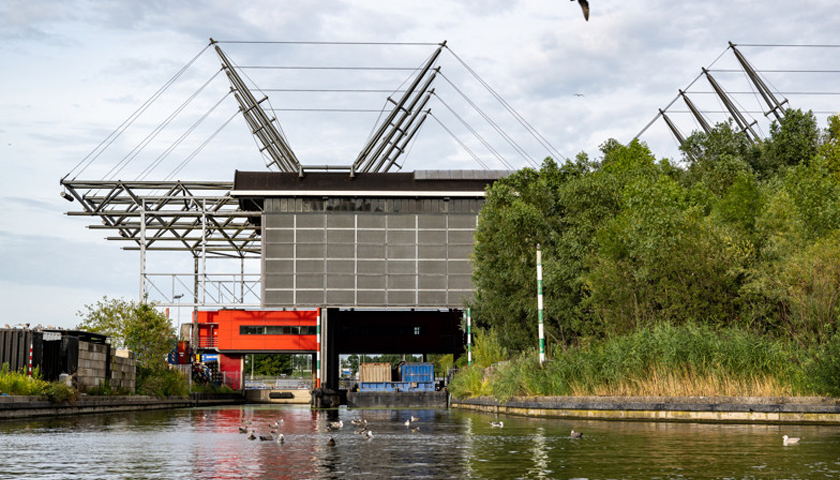In a groundbreaking move for climate action, the Dutch city of The Hague has successfully defended its pioneering law banning fossil fuel advertisements, setting a global precedent for cities aiming to curb the influence of high-carbon industries. The legislation, which came into effect on January 1, 2025, prohibits publicly and privately funded advertising for fossil fuel products and services with high carbon footprints, including petrol and diesel, aviation, and cruise ships, across public spaces like billboards and bus shelters. The court in The Netherlands has upheld the ban on fossil advertising the council of The Hague had put in place as first council in the world. The court ruled in favour of the municipality on all counts. This confirms that local authorities, due to their responsibility for public health and the environment, have the authority to restrict fossil advertising in public spaces. Alderman Robert Barker: “This is a milestone ruling.”
The ban, embedded in the city’s General Municipal Bye-Law (APV), faced significant opposition from political groups such as the VVD, Hart voor Den Haag, and PVV, as well as the travel industry. Despite this, it passed with a narrow majority in September 2024, reflecting growing public and political support for decisive climate action. The legislation builds on years of grassroots pressure, particularly from the climate campaign group Reclame Fossielvrij (Fossil Free Advertising), which has long argued that fossil fuel advertising undermines efforts to combat climate change by promoting unsustainable consumption.
Alderman Robert Barker (Public space, Animal welfare and the Environment, Party for the Animals) called the ruling an important step forward: “This decision shows that municipalities are not powerless but do in fact have tools to address the climate crisis.
The Hague was the first city in the world to ban fossil advertising in public spaces, because such advertising contributes to worsening climate change. It would be great if more municipalities followed suit, thereby contributing to a better world.”
The court’s decision emphasiszed that the ban was a proportionate measure, balancing the general public’s health interests against the commercial interests of advertisers. The ruling cited the city’s responsibility to address the climate crisis, drawing parallels to restrictions on tobacco advertising, which have been widely accepted as legitimate public policy measures. Environmental legal charity ClientEarth, which supported The Hague’s case, argued that the ban complies with EU law and is a “fundamental step for aver fekting the worst of the climate crisis.”
A Precedent for Global Change
The Hague’s fossil fuel ad ban is not an isolated effort but part of a growing movement to limit the influence of high-carbon industries. The legislation follows a call by UN Secretary-General António Guterres in June 2024 for governments to ban fossil fuel advertising, likening it to tobacco ad restrictions due to their harmful impacts. Other cities, including Amsterdam, Edinburgh, and Sydney, have implemented similar measures through voluntary agreements or contract amendments with advertising operators. However, The Hague’s legally binding ordinance sets it apart as a trailblazer, offering a model for municipalities worldwide.
The ruling has sparked interest in cities like Toronto, Canada, and Graz, Austria, where similar campaigns are gaining traction. In the Netherlands, Amsterdam has proposed a local law to ban fossil fuel and meat advertisements, following its earlier move to restrict such ads in subway stations. The Hague’s success in court could embolden other municipalities to adopt legally binding measures, creating a “domino effect” that challenges the pervasive marketing of fossil fuel companies. As Robert Barker, Deputy Mayor for Public Space, Animal Welfare, and the Environment, noted, “They [the travel industry] wouldn’t challenge it if they thought it had no effect. They fear the domino effect.”
Fossil fuel advertising has been criticized for greenwashing—misleading the public by presenting companies as environmentally friendly when their core operations remain heavily reliant on fossil fuels. For instance, ClientEarth’s successful case against Dutch airline KLM highlighted misleading claims about the sustainability of aviation. The Hague’s ban sidesteps the limitations of greenwashing challenges by prohibiting all fossil fuel ads, regardless of whether they make environmental claims, ensuring a broader impact on reducing the promotion of high-carbon products.
As the climate crisis intensifies, The Hague’s precedent could catalyze a global shift toward restricting the fossil fuel industry’s influence. While the ban is a significant step, it is only one part of a broader strategy needed to achieve climate neutrality and avert the worst impacts of global warming. For now, The Hague stands as a beacon of innovation, proving that local governments can take decisive action to align public spaces with the urgent demands of a sustainable future.



